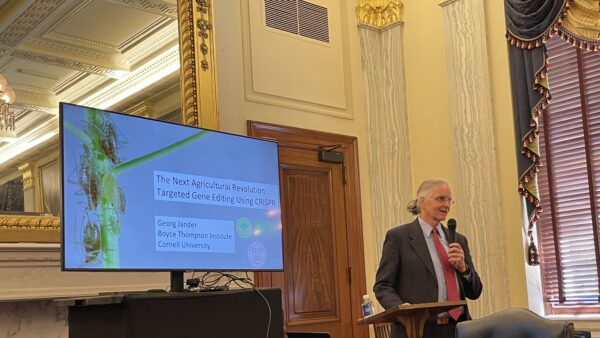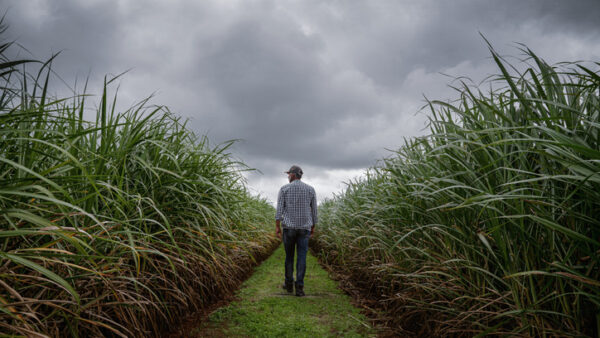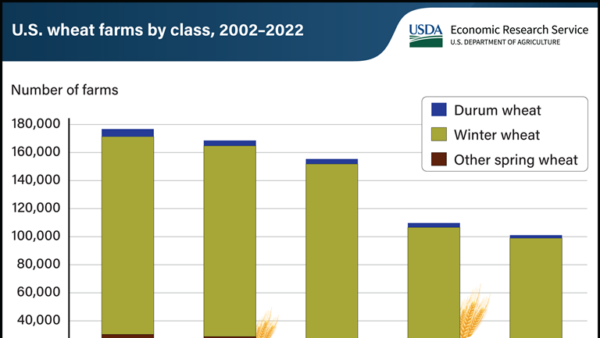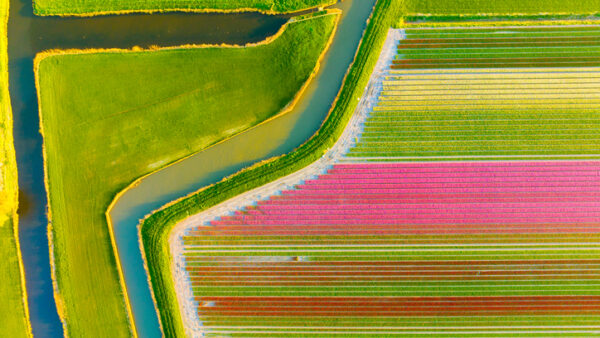In developing countries, seed choice that a farmer can sow is limited to what is available. This is a step before having the luxury of a choice of varieties within that species to plant. Due to a limited market size, larger seed companies do not see the economics of selling their varieties in developing countries. The ones that have tried have found the task hard, with limited infrastructure to allow the easy movement of seed and the availability of stores where it could be sold.
This gap has tried to be filled with the public sector breeding programs. The science behind these programs is robust and many good varieties has been developed. However, the step of getting this seed to farmers is where the system can break down. I remember once talking to a university about breeding wheat in Ethiopia. They had bred over 70 varieties of wheat but only four had been taken up by farmers. The weakness is the last step of finding a way to get the seed to the farmers. This is usually done through rural stores in the west, however the number of these in developing countries are limited.
Rather than this being a downfall of a seed sector, it can be seen as a perfect opportunity for people passionate about seed to help the sector grow. This is the first ingredient to help that seed germinate, a passion for the seed that you are trying to get to farmers. This passion will help you ride the roller coaster of ups and downs that people can experience in the seed industry from droughts and seed production crop failures to a strong demand that you can give you a good profit.
For anyone wanting to start a business in the seed industry, the first step is to do your research. Contact as many people as possible that have knowledge in the seed industry. It is best to follow the head and not the heart. You may have ideas that you may think are good, but is the market ready for them?
This comes down to supply and demand. Can you consistently supply a product that market is looking for? It is good to do a market linkage analysis first. This is a plan looking at every step along the path from that first seed in a farmer’s hand to the final product being eaten by the consumer. Are there any weaknesses along this pathway? If so, does your plan address these? Once you feel confident your plan is developed it is important to start off small and allow things to naturally grow. Don’t over commit with costly equipment as it may take a long time before the company makes a profit. The most important resource a seed company can have is its people and its reputation. The people are the foundation of the knowledge that the business is built upon. Always keep your business dealings as squeaky clean as possible. Reputation once lost is hard to rebuild.
If money is difficult to access to develop ideas, then different business plans can be looked at. Co-operatives are one of these that allows farmers to group resources together that they can share. This may give a business a greater size to supply a large demand. It is important to have good rules in place with a co-operative as when many people are involved with different ideas and personalities disputes can occur that have to be settled.
As a company grows there many be an opportunity to expand the range of products that they supply. Owning more of the chain from the original selling of the seed to when the consumer eats the product gives more control on supply and greater potential for profits.
As seed companies grow the wheel of life turns creating opportunities for small companies to find niches where the larger companies cannot fill, and the cycle begins again. As long as there are people that have a passion in seed there will always be seed companies.













